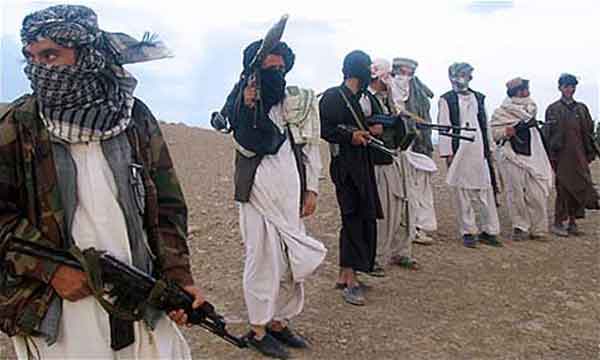IDR Blog
The Pakistan-TTP Truce

Pakistan’s Information Minister Fawad Chaudhary stated on November 8 that the Tehrik-i-Taliban (TTP) has agreed to a complete ceasefire after the talks that the Taliban government in Afghanistan facilitated. Chaudhary also added that “the ceasefire will keep on extending with the progress in negotiations’, and that the negotiations will follow the law and constitution of Pakistan.
Sirajuddin Haqqani, Afghanistan’s Interior Minister and one of the two deputies of Taliban supreme leader Mawlawi Hibatullah Akhundzada, negotiated with TTP for the Pakistan government. This is not surprising because Sirajuddin heading the Haqqani Network was positioned by Pakistan’s ISI as the deputy leader of the Afghan Taliban a few years back. Sirajuddin is a wanted terrorist with a reward of $10 million on his head.
On November 9, Fawad Chaudhary held a media briefing after a cabinet meeting on the security situation and told reporters that the Pakistan government was willing to give a chance of peace to those militants who were willing to shun violence and accept the constitution. He went on to say that certain groups linked with the TTP wanted to leave violence and added, “There are various groups within TTP, there are (some) ideologies, while there are others who joined the organization under compulsion. The state of Pakistan wants to give the citizens a chance if all of them, some of them, or a fraction of them, want to come back and show their allegiance to the constitution.”
Fawad’s media briefing apparently was a feeble attempt to drive a split within the TTP which is another face of Al Qaeda. has grown to a conglomerate of 13 terrorist organizations and is getting an influx of foreign fighters. It was also perhaps to portray Pakistan’s desire for peace to Afghanistan’s acting foreign minister Amir Khan Muttaqi visiting Pakistan for two days commencing November 10; as follow up to Pakistan’s foreign minister Shah Mahmood Qureshi’s visit to Kabul on October 21.
There is dismay in some quarters over the ceasefire agreed to by the TTP while some have termed it a ‘trilateral terrorist arrangement’; between Pakistan, Afghan Taliban and the TTP. But significantly the TTP had demanded release of a number of prisoners as a precondition to ceasefire talks with the Pakistani government. A TTP commander had told Reuters, “We aren’t too hopeful of the immediate results of the talks but our leaders had demanded the release of prisoners if they are sincere in meaningful negotiations.”
The question now is whether the month long Pakistan-TTP ceasefire beginning November 9 will last and get extended? Following need to be taken into account in this regard:
- On November 5, prior to the ceasefire, TTP sources were conveying that the purpose of Pakistan releasing news of the ongoing talks in the media is to acknowledge defeat of the Pakistan army and to beg for talks with the TTP.
- Concurrent to the Pakistan government trying to negotiate a ceasefire with the TTP, TTP’s mouthpiece website Ghazi Media Network released a video clip of foreign militants joining the TTP.
- The TTP has possibly gone along with the temporary ceasefire because it wants the 102 TTP cadres and leaders released from Pakistani prisons as part of the deal.
- Pakistan has surrendered to the extremist Tehreek-E-Labbaik Pakistan (TLP) after at least 21 people, including 10 policemen lost their lives in fierce clashes between members of the group and law enforcement agencies, by releasing all TLP prisoners and lifting the ban on TLP. This would have been noted with interest by the TTP especially since TLP does not even have the wherewithal like the TTP to wage war on the Pakistani establishment.
- According to sources on the ground, many areas in Waziristan have fallen to the TTP. TTP influence is growing in other areas too and locals in Khyber Pashtunkhwa (KPK) are turning to the TTP instead of Pakistani authorities to solve day to day problems and disputes. Pakistani authorities are called “occupation forces” by the locals.
- Noor Wali Mehsud, Emir of TTP recently said in an interview with CNN that his group aimed to make the tribal districts of Pakistan “independent”.
- On November 8 (day of the ceasefire agreement) three TTP fighters in Bannu in KPK were killed by Pakistani security forces.
- Concurrently, as a result of an IED attack in Zain Zargah area of Gariom Tehsil in North Waziristan, four Pakistani security personnel were eliminated for which TTP claimed responsibility. This indicates the fragility of the ceasefire agreement.
The genie of extremism bred by Pakistan has come to haunt the Pakistani establishment which appears too weak and helpless to fight back. The Pakistani government is down on its knees with the TLP and now the TTP. The Lahore High Court on November 6 set aside a trial court’s conviction and acquitted six senior members of Jamaat ud-Dawa (JuD) in a terror financing case for the 26/11 Mumbai terrorist attacks in 2008 that killed 166 people.
In April this year, the Lahore anti-terrorism court had handed nine year imprisonment each to JuD senior members – Malik Zafar, Iqbal, Yahya mujahid (JuD spokesman), Nasrullah, Samiullah and Umar Bahadur plus six months jail term to Hafiz Abdul Rehman Makki (brother-in-law of Hafiz Saeed. Imprisonments have become the norm in Pakistan to hoodwink the Financial Action Task Forces, with the convicted only to be released later.
According to Mansoor Ahmad Khan, Pakistan’s ambassador to Afghanistan, the interim Afghan Taliban government has assured Pakistan of action against TTP and its affiliates. This appears to be a sweet pill from one terrorist organization to the other (Pakistan). Considering that the Taliban already has its hands full with the ISIS-K, would it like to take on the TTP militarily as well. Besides, the Taliban released over 2000 TTP cadres and leaders from prisons in Afghanistan after taking control of the nation, which indicates the close bonds between the two outfits.
The Pakistani media is portraying that the TTP wants Sharia to be imposed in KPK. This is an attempt to deflect from the real truth. It is true that Noor Wali Mehsud wants to liberate the tribal districts of Pakistan but TTP’s aim is to eventually overthrow the Pakistani government, take control, abrogate the constitution and impose Sharia Law. Will Pakistan handover KPK to TTP (much as Imran Khan aka Taliban Khan may be inclined to do so personally) and hope its troubles are over? Surely not unless it is part of the “secret” ceasefire deal? But in such case it will have repercussions in other areas of Pakistan facing armed rebellion.
Considering the above, the chances of extending the ceasefire with the TTP appear fragile. It may possibly last till all the TTP cadres and leaders are released from prison. On the other hand, if their release is delayed on any pretext by Pakistani authorities, the TTP may hit back with vengeance. So it is a Catch 22 situation for Imran Khan already living in fear of a military coup. The overall aim of the TTP to overthrow the Pakistani establishment and install an Islamic Emirate of Pakistan will not change either way.




